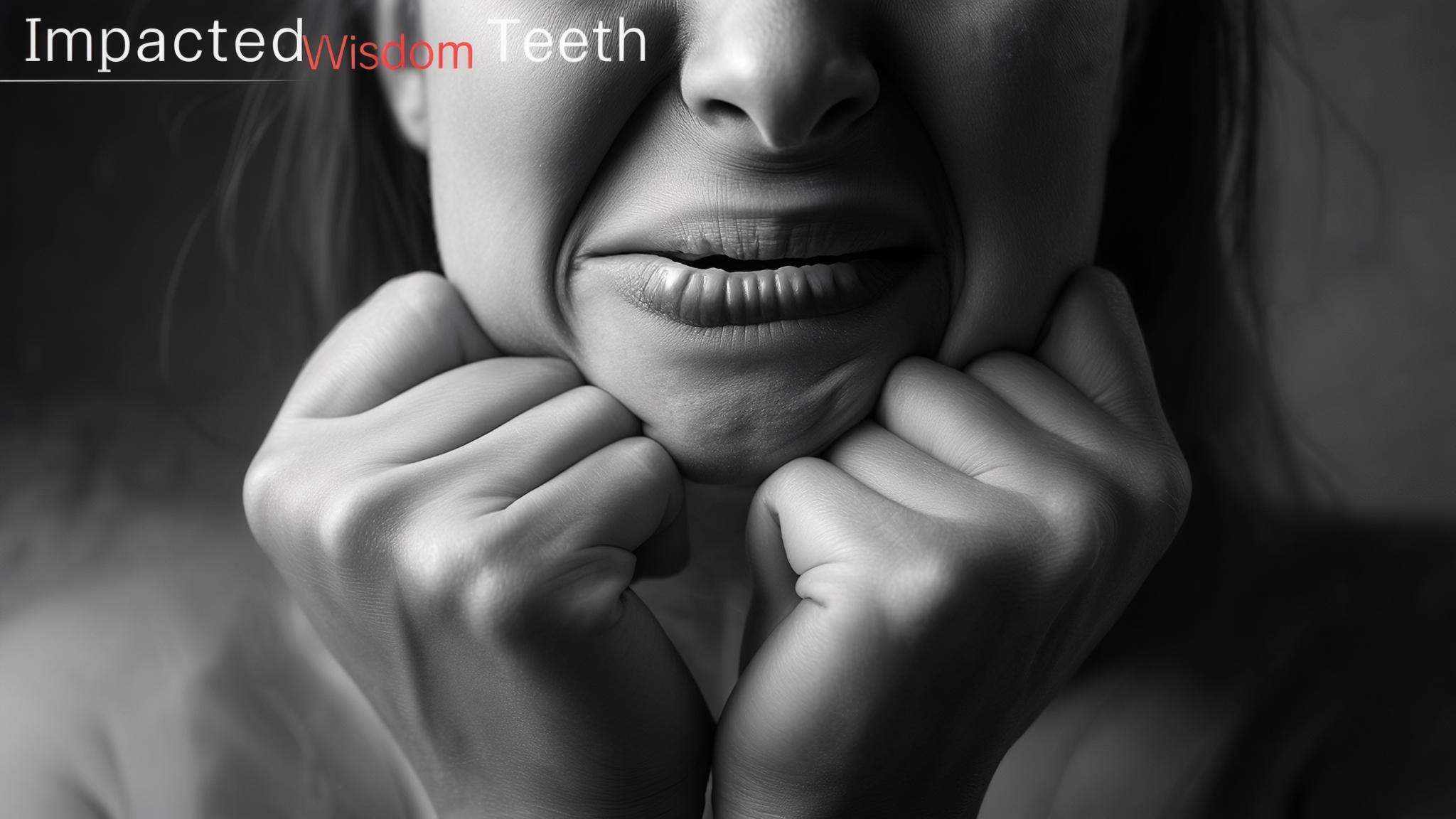Understanding Impacted Wisdom Teeth
Wisdom teeth, also known as third molars, are the last set of teeth to emerge in the back corners of your mouth, typically appearing in your late teens or early twenties. Impacted wisdom teeth occur when there is not enough room in the mouth for these teeth to emerge properly, leading to them being trapped beneath the gum or pushing against other teeth. There are different types of impaction, such as fully impacted, where the tooth remains entirely beneath the gum, and partially impacted, where part of the tooth is visible.
Common Symptoms
Impacted wisdom teeth can cause a variety of symptoms:
- Pain in the jaw or gums: This is often the first sign, as the tooth presses against nerves or other teeth.
- Swelling and inflammation: The gums around the impacted tooth may become swollen and tender.
- Difficulty opening the mouth: This can occur due to swelling or pain.
- Bad breath or an unpleasant taste: This might be due to trapped food or bacteria around the impacted tooth.
Immediate Steps to Ease Pain
When dealing with the discomfort of impacted wisdom teeth, there are several immediate steps you can take to alleviate pain.
Over-the-Counter Pain Relief
Medications such as ibuprofen or acetaminophen can help reduce pain and inflammation. It's important to follow the dosage instructions on the package and consult with a healthcare provider if you have any concerns or pre-existing conditions.
Cold Compress Application
Applying a cold compress to the outside of your cheek can help reduce swelling and numb the area. Wrap ice in a cloth and apply it for 15-20 minutes at a time, allowing breaks in between.
Saltwater Rinse
A simple saltwater rinse can help clean the area and reduce bacteria. Dissolve a teaspoon of salt in a cup of warm water, swish it around your mouth for about 30 seconds, and spit it out. Repeat several times a day.
Clove Oil Application
Clove oil is known for its natural anesthetic properties. Apply a small amount to a cotton ball and gently dab it on the affected area. Be cautious not to ingest it and wash your hands thoroughly after application.
Home Remedies for Temporary Relief
Herbal Remedies
- Chamomile Tea Compress: Soak a chamomile tea bag in warm water, let it cool slightly, and apply it to the swollen area.
- Peppermint Tea Rinse: Peppermint has numbing properties. Brew peppermint tea, let it cool, and use it as a mouth rinse.
Elevating the Head While Sleeping
Keeping your head elevated can reduce blood flow to the affected area, potentially decreasing swelling and pain.
Soft Food Diet
Adopt a soft food diet to avoid aggravating the impacted area. Consider foods like yogurt, mashed potatoes, and smoothies. Stay hydrated to aid in healing.
When to Seek Professional Help
While home remedies can provide temporary relief, certain signs indicate the need for professional dental care:
- Severe pain that does not subside
- Signs of infection, such as fever or pus discharge
- Difficulty swallowing or breathing
Potential Dental Treatments
Dentists may recommend extractions for impacted wisdom teeth to prevent future complications. If an infection is present, antibiotics may be prescribed to manage it effectively.
Conclusion
Managing the pain from impacted wisdom teeth is crucial for your comfort and oral health. While home remedies can offer temporary relief, seeking professional dental advice ensures a long-term solution and helps prevent future issues. Regular dental check-ups are essential to maintain oral health and address any potential problems early on.

